I. INTRODUCTION
The status of women in society is neither a new issue nor is it a fully settled one. The position of Islam on this issue has been among the subjects presented to the Western reader with the least objectivity. This writing is intended to provide a brief and authentic exposition
of what Islam stands for in this regard. The teachings of Islam are
based essentially on the Quran (God's revelation) and Hadith
(elaboration by Prophet Muhammad) pbuh. The Quran and the Hadith, properly and unbiasedly understood,
provide the basic source of authentication for any position or view
which is attributed to Islam.
The paper starts with a brief survey of the status of women in the
pre-Islamic era. It then focuses on these major questions: What is the
position of Islam regarding the status of woman in society? How similar
or different is that position from "the spirit of the time," which was
dominant when Islam was revealed? How would this compare with the
"rights" which were finally gained by woman in recent decades?
II. HISTORICAL PERSPECTIVES
One major objective of this paper is to provide a fair evaluation
of what Islam contributed (or failed to contribute) toward the
restoration of woman's dignity and rights. In order to achieve this
objective, it may be useful to review briefly how women were treated in
general in previous civilizations and religions, especially those which
preceded Islam (Pre-610 C.E.). Part of the information provided here,
however, describes the status of woman as late as the nineteenth
century, more than twelve centuries after Islam.
Women in Ancient Civilization
Describing the status of the Indian woman, Encyclopedia Britannica states:
In India, subjection was a cardinal principle. Day and night must
women be held by their protectors in a state of dependence says Manu.
The rule of inheritance was agnatic, that is descent traced through
males to the exclusion of females. In Hindu scriptures, the description of a good wife is as follows:
"a woman whose mind, speech and body are kept in subjection, acquires
high renown in this world, and, in the next, the same abode with her
husband."
In Athens, women were not better off than either the Indian or the Roman women.
Athenian women were always minors, subject to some male - to their father, to their brother, or to some of their male kin. Her consent in marriage was not generally thought to be necessary
and "she was obliged to submit to the wishes of her parents, and receive
from them her husband and her lord, even though he were stranger to
her." A Roman wife was described by an historian as: "a babe, a minor, a
ward, a person incapable of doing or acting anything according to her
own individual taste, a person continually under the tutelage and
guardianship of her husband."
In the Encyclopedia Britannica, we find a summary of the legal status of women in the Roman civilization:
In Roman Law a woman was even in historic times completely
dependent. If married she and her property passed into the power of her
husband... the wife was the purchased property of her husband, and like a
slave acquired only for his benefit. A woman could not exercise any
civil or public office, could not be a witness, surety, tutor, or
curator; she could not adopt or be adopted, or make will or contract.
Among the Scandinavian races women were: under perpetual tutelage,
whether married or unmarried. As late as the Code of Christian V, at the
end of the 17th Century, it was enacted that if a woman married without
the consent of her tutor he might have, if he wished, administration
and usufruct of her goods during her life.
According to the English Common Law:
...all real property which a wife held at the time of a marriage
became a possession of her husband. He was entitled to the rent from the
land and to any profit which might be made from operating the estate
during the joint life of the spouses. As time passed, the English courts
devised means to forbid a husband's transferring real property without
the consent of his wife, but he still retained the right to manage it
and to receive the money which it produced. As to a wife's personal
property, the husband's power was complete. He had the right to spend it
as he saw fit.
Only by the late nineteenth Century did the situation start to
improve. "By a series of acts starting with the Married women's Property
Act in 1870, amended in 1882 and 1887, married women achieved the right
to own property and to enter contracts on a par with spinsters, widows,
and divorcees." As late as the Nineteenth Century an authority in
ancient law, Sir Henry Maine, wrote: "No society which preserves any
tincture of Christian institutions is likely to restore to married women
the personal liberty conferred on them by the Middle Roman Law."
In his essay The Subjection of Women, John Stuart Mill wrote:
We are continually told that civilization and Christianity have
restored to the woman her just rights. Meanwhile the wife is the actual
bondservant of her husband; no less so, as far as the legal obligation
goes, than slaves commonly so called.
Before moving on to the Quranic decrees concerning the status of
woman, a few Biblical decrees may shed more light on the subject, thus
providing a better basis for an impartial evaluation. In the Mosaic Law,
the wife was betrothed. Explaining this concept, the Encyclopedia
Biblical states: "To betroth a wife to oneself meant simply to acquire
possession of her by payment of the purchase money; the betrothed is a
girl for whom the purchase money has been paid." From the legal point of
view, the consent of the girl was not necessary for the validation of
her marriage. "The girl's consent is unnecessary and the need for it is
nowhere suggested in the Law."
As to the right of divorce, we read in the Encyclopedia Biblical:
"The woman being man's property, his right to divorce her follows as a
matter of course." The right to divorce was held only by man. "In the
Mosaic Law divorce was a privilege of the husband only.... "
The position of the Christian Church until recent centuries seems
to have been influenced by both the Mosaic Law and by the streams of
thought that were dominant in its contemporary cultures. In their book,
Marriage East and West, David and Vera Mace wrote:
Let no one suppose, either, that our Christian heritage is free of
such slighting judgments. It would be hard to find anywhere a collection
of more degrading references to the female sex than the early Church
Fathers provide. Lecky, the famous historian, speaks of (these fierce
incentives which form so conspicuous and so grotesque a portion of the
writing of the Fathers... woman was represented as the door of hell, as
the mother of all human ills. She should be ashamed at the very thought
that she is a woman. She should live in continual penance on account of
the curses she has brought upon the world. She should be ashamed of her
dress, for it is the memorial of her fall. She should be especially
ashamed of her beauty, for it is the most potent instrument of the
devil). One of the most scathing of these attacks on woman is that of
Tertullian: (Do you know that you are each an Eve? The sentence of God
on this sex of yours lives in this age: the guilt must of necessity live
too. You are the devil's gateway: you are the unsealer of that
forbidden tree; you are the first deserters of the divine law; you are
she who persuades him whom the devil was not valiant enough to attack.
You destroyed so easily God's image, man. On account of your desert -
that is death - even the Son of God had to die). Not only did the church
affirm the inferior status of woman, it deprived her of legal rights
she had previously enjoyed.
III. WOMAN IN ISLAM
In the midst of the darkness that engulfed the world, the divine
revelation echoed in the wide desert of Arabia with a fresh, noble, and
universal message to humanity:
"O Mankind, keep your duty to your Lord who
created you from a single soul and from it created its mate (of same
kind) and from them twain has spread a multitude of men and women...". [Noble Quran 4:1]
A scholar who pondered about this verse states: "It is believed
that there is no text, old or new, that deals with the humanity of the
woman from all aspects with such amazing brevity, eloquence, depth, and
originality as this divine decree."
Stressing this noble and natural conception, them Quran states:
"He (God) it is who did create you from a
single soul and therefrom did create his mate, that he might dwell with
her (in love)..." [Noble Quran 7:189]
"The Creator of heavens and earth: He has made for you pairs from among yourselves" [Noble Quran 42:11]
"And Allah has given you mates of your own
nature, and has given you from your mates, children and grandchildren,
and has made provision of good things for you. Is it then in vanity that
they believe and in the grace of God that they disbelieve?" [Noble Quran 16:72]
The rest of this paper outlines the position of Islam regarding the
status of woman in society from its various aspects - spiritually,
socially, economically and politically.
1. The Spiritual Aspect
The Quran provides clear-cut evidence that woman is completely
equated with man in the sight of God in terms of her rights and
responsibilities. The Quran states:
"Every soul will be (held) in pledge for its deeds" [Noble Quran 74:38]
It also states:
"...So their Lord accepted their prayers,
(saying): I will not suffer to be lost the work of any of you whether
male or female. You proceed one from another..." [Noble Quran 3:195]
"Whoever works righteousness, man or woman, and
has faith, verily to him will We give a new life that is good and pure,
and We will bestow on such their reward according to their actions." [Noble Quran 16:97, see also 4:124]
Woman according to the Quran is not blamed for
Adam's first mistake. Both were jointly wrong in their disobedience to
God, both repented, and both were forgiven. [Noble Quran 2:36, 7:20-24]
In one verse in fact [20:121], Adam specifically, was blamed. In terms of religious obligations, such as the Daily Prayers,
Fasting, Poor-due, and Pilgrimage, woman is no different from man. In
some cases indeed, woman has certain advantages over man. For example,
the woman is exempted from the daily prayers and from fasting during her
menstrual periods and forty days after childbirth. She is also exempted
from fasting during her pregnancy and when she is nursing her baby if
there is any threat to her health or her baby's. If the missed fasting
is obligatory (during the month of Ramadan), she can make up for the
missed days whenever she can. She does not have to make up for the
prayers missed for any of the above reasons. Although women can and did
go into the mosque during the days of the Prophet (peace and blessings
be upon him) and thereafter attendance at the Friday congregational
prayers is optional for them while it is mandatory for men (on Friday).
This is clearly a tender touch of the Islamic teachings for they
are considerate of the fact that a woman may be nursing her baby or
caring for him, and thus may be unable to go out to the mosque at the
time of the prayers. They also take into account the physiological and
psychological changes associated with her natural female functions.
2. The Social Aspect
a) As a child and an adolescent
Despite the social acceptance of female infanticide among some
Arabian tribes, the Quran forbade this custom, and considered it a crime
like any other murder.
"And when the female (infant) buried alive - is questioned, for what crime she was killed." [Noble Quran 81:8-9]
Criticizing the attitudes of such parents who reject their female children, the Quran states:
"When news is brought to one of them, of (the
Birth of) a female (child), his face darkens and he is filled with
inward grief! With shame does he hide himself from his people because of
the bad news he has had! Shall he retain her on (sufferance) and
contempt, or bury her in the dust? Ah! What an evil (choice) they decide
on?" [Noble Quran 16:58-59]
Far from saving the girl's life so that she may later suffer
injustice and inequality, Islam requires kind and just treatment for
her. Among the sayings of Prophet Muhammad (peace and blessings be upon
him) in this regard are the following:
Whosoever has a daughter and he does not bury her alive, does not
insult her, and does not favor his son over her, God will enter him into
Paradise. [Ibn Hanbal, No. 1957]
Whosoever supports two daughters till they mature, he and I will
come in the Day of Judgment as this (and he pointed with his two fingers
held together).
A similar Hadith deals in like manner with one who supports two sisters. [Ibn-Hanbal, No. 2104]
The right of females to seek knowledge is not different from that
of males. Prophet Muhammad (peace and blessings be upon him) said:
"Seeking knowledge is mandatory for every Muslim". [Al-Bayhaqi]
Muslim as used here including both males and females.
b) As a wife:
The Quran clearly indicates that marriage is sharing between the
two halves of the society, and that its objectives, besides perpetuating
human life, are emotional well-being and spiritual harmony. Its bases
are love and mercy.
Among the most impressive verses in the Quran about marriage is the following.
"And among His signs is this: That He created
mates for you from yourselves that you may find rest, peace of mind in
them, and He ordained between you love and mercy. Lo, herein indeed are
signs for people who reflect." [Noble Quran 30:21]
According to Islamic Law, women cannot be forced to marry anyone without their consent.
Ibn 'Abbas reported that a girl came to the Messenger of God,
Muhammad (peace and blessings be upon him), and she reported that her
father had forced her to marry without her consent. The Messenger of God
gave her the choice... (between accepting the marriage or invalidating
it). [Ibn Hanbal No. 2469]
In another version, the girl said:
"Actually I accept this marriage but I wanted to let women know that parents have no right (to force a husband on them)" [Ibn Majah, No. 1873]
Besides all other provisions for her protection at the time of
marriage, it was specifically decreed that woman has the full right to
her Mahr, a marriage gift, which is presented to her by her husband and
is included in the nuptial contract, and that such ownership does not
transfer to her father or husband. The concept of Mahr in Islam is
neither an actual or symbolic price for the woman, as was the case in
certain cultures, but rather it is a gift symbolizing love and
affection.
The rules for married life in Islam are clear and in harmony with
upright human nature. In consideration of the physiological and
psychological make-up of man and woman, both have equal rights and
claims on one another, except for one responsibility, that of
leadership. This is a matter which is natural in any collective life and
which is consistent with the nature of man.
The Quran thus states:
"...And they (women) have rights similar to those (of men) over them, and men are a degree above them." [Noble Quran 2:228]
Such degree is Quiwama (maintenance and protection). This refers to
that natural difference between the sexes which entitles the weaker sex
to protection. It implies no superiority or advantage before the law.
Yet, man's role of leadership in relation to his family does not mean
the husband's dictatorship over his wife. Islam emphasizes the
importance of taking counsel and mutual agreement in family decisions.
The Quran gives us an example:
"...If they (husband wife) desire to wean the child by mutual consent and (after) consultation, there is no blame on them..." [Noble Quran 2:233]
Over and above her basic rights as a wife comes the right which is
emphasized by the Quran and is strongly recommended by the Prophet
(peace and blessings be upon him); kind treatment and companionship.
The Quran states:
"...But consort with them in kindness, for if
you hate them it may happen that you hate a thing wherein God has placed
much good." [Noble Quran 4:19]
Prophet Muhammad (peace and blessings be upon him) said:
"The best of you is the best to his family and I am the best among you to my family."
The most perfect believers are the best in conduct and best of you are those who are best to their wives. [Ibn-Hanbal, No. 7396]
Behold, many women came to Muhammad's wives complaining against
their husbands (because they beat them) - - those (husbands) are not the
best of you.
As the woman's right to decide about her marriage is recognized, so
also her right to seek an end for an unsuccessful marriage is
recognized. To provide for the stability of the family, however, and in
order to protect it from hasty decisions under temporary emotional
stress, certain steps and waiting periods should be observed by men and
women seeking divorce. Considering the relatively more emotional nature
of women, a good reason for asking for divorce should be brought before
the judge. Like the man, however, the woman can divorce her husband with
out resorting to the court, if the nuptial contract allows that.
More specifically, some aspects of Islamic Law concerning marriage
and divorce are interesting and are worthy of separate treatment. When the continuation of the marriage relationship is impossible
for any reason, men are still taught to seek a gracious end for it.
The Quran states about such cases:
"When you divorce women, and they reach their
prescribed term, then retain them in kindness and retain them not for
injury so that you transgress (the limits)..." [Noble Quran 2:231] [See also Quran 2:229 and 33:49]
c) As a mother:
Islam considered kindness to parents next to the worship of God.
"And we have enjoined upon man (to be good) to his parents: His mother bears him in weakness upon weakness..." [Noble Quran 31:14] [See also Quran 46:15, 29:8]
Moreover, the Quran has a special recommendation for the good treatment of mothers:
"Your Lord has decreed that you worship none save Him, and that you be kind to your parents..." [Noble Quran 17:23]
A man came to Prophet Muhammad (peace and blessings be upon him) asking:
O Messenger of God, who among the people is the most worthy of my
good company? The Prophet (peace and blessings be upon him) said, Your
mother. The man said then who else: The Prophet (peace and blessings be
upon him) said, Your mother. The man asked, Then who else? The Prophet
(peace and blessings be upon him) said, Your mother. The man asked, Then
who else? Only then did the Prophet (peace and blessings be upon him)
say, Your father. [Al-Bukhari and Muslim]
A famous saying of the Prophet (peace and blessings be upon him) is: "Paradise is at the feet of mothers." [In An-Nasa'i, Ibn Majah, Ahmad]
"It is the generous (in character) who is good to women, and it is the wicked who insults them."
3. The Economic Aspect
Islam decreed a right of which woman was deprived both before Islam
and after it (even as late as this century), the right of independent
ownership. According to Islamic Law, woman's right to her money, real
estate, or other properties is fully acknowledged. This right undergoes
no change whether she is single or married. She retains her full rights
to buy, sell, mortgage or lease any or all her properties. It is nowhere
suggested in the Law that a woman is a minor simply because she is a
female. It is also noteworthy that such right applies to her properties
before marriage as well as to whatever she acquires thereafter.
With regard to the woman's right to seek employment it should be
stated first that Islam regards her role in society as a mother and a
wife as the most sacred and essential one. Neither maids nor
baby-sitters can possibly take the mother's place as the educator of an
upright, complex free, and carefully-reared children. Such a noble and
vital role, which largely shapes the future of nations, cannot be
regarded as "idleness".
However, there is no decree in Islam which forbids woman from
seeking employment whenever there is a necessity for it, especially in
positions which fit her nature and in which society needs her most.
Examples of these professions are nursing, teaching (especially for
children), and medicine. Moreover, there is no restriction on benefiting
from woman's exceptional talent in any field. Even for the position of a
judge, where there may be a tendency to doubt the woman's fitness for
the post due to her more emotional nature, we find early Muslim scholars
such as Abu-Hanifah and At-Tabari holding there is nothing wrong with
it. In addition, Islam restored to woman the right of inheritance, after
she herself was an object of inheritance in some cultures. Her share is
completely hers and no one can make any claim on it, including her
father and her husband.
"Unto men (of the family) belongs a share of
that which Parents and near kindred leave, and unto women a share of
that which parents and near kindred leave, whether it be a little or
much - a determinate share." [Noble Quran 4:7]
Her share in most cases is one-half the man's share, with no
implication that she is worth half a man! It would seem grossly
inconsistent after the overwhelming evidence of woman's equitable
treatment in Islam, which was discussed in the preceding pages, to make
such an inference. This variation in inheritance rights is only
consistent with the variations in financial responsibilities of man and
woman according to the Islamic Law. Man in Islam is fully responsible
for the maintenance of his wife, his children, and in some cases of his
needy relatives, especially the females. This responsibility is neither
waived nor reduced because of his wife's wealth or because of her access
to any personal income gained from work, rent, profit, or any other
legal means.
Woman, on the other hand, is far more secure financially and is far
less burdened with any claims on her possessions. Her possessions
before marriage do not transfer to her husband and she even keeps her
maiden name. She has no obligation to spend on her family out of such
properties or out of her income after marriage. She is entitled to the
"Mahr" which she takes from her husband at the time of marriage. If she
is divorced, she may get an alimony from her ex-husband.
An examination of the inheritance law within the overall framework
of the Islamic Law reveals not only justice but also an abundance of
compassion for woman.
4. The Political Aspect
Any fair investigation of the teachings of Islam into the history
of the Islamic civilization will surely find a clear evidence of woman's
equality with man in what we call today "political rights".
This includes the right of election as well as the nomination to
political offices. It also includes woman's right to participate in
public affairs. Both in the Quran and in Islamic history we find
examples of women who participated in serious discussions and argued
even with the Prophet (peace and blessings be upon him) himself (see the
Noble Quran 58:14 and 60:10-12).
During the Caliphate of 'Umar Ibn al-Khattab, a woman argued with
him in the mosque, proved her point, and caused him to declare in the
presence of people: "A woman is right and 'Umar is wrong."
Although not mentioned in the Quran, one Hadith of the Prophet is
interpreted to make woman ineligible for the position of head of state.
The Hadith referred to is roughly translated: "A people will not prosper
if they let a woman be their leader." This limitation, however, has
nothing to do with the dignity of a woman or with her rights. It is
rather, related to the natural differences in the biological and
psychological make-up of men and women.
According to Islam, the head of the state is no mere figurehead. He
leads people in the prayers, especially on Fridays and festivities; he
is continuously engaged in the process of decision-making pertaining to
the security and well-being of his people. This demanding position, or
any similar one, such as the Commander of the Army, is generally
inconsistent with the physiological and psychological make-up of woman
in general. It is a medical fact that during their monthly periods and
during their pregnancies, women undergo various physiological and
psychological changes. Such changes may occur during an emergency
situation, thus affecting her decision, without considering the
excessive strain which is produced. Moreover, some decisions require a
maximum of rationality and a minimum of emotionality - a requirement
which does not coincide with the instinctive nature of women.
Even in modern times, and in the most developed countries, it is
rare to find a woman in the position of a head of state acting as more
than a figurehead, a woman commander of the armed services, or even a
proportionate number of women representatives in parliaments, or similar
bodies. One can not possibly ascribe this to backwardness of various
nations or to any constitutional limitation on woman's right to be in
such a position as a head of state or as a member of the parliament. It
is more logical to explain the present situation in terms of the natural
and indisputable differences between man and woman, a difference which
does not imply any "supremacy" of one over the other. The difference
implies rather the "complementary" roles of both the sexes in life.
IV. CONCLUSION
The first part of this paper deals briefly with the position of
various religions and cultures on the issue under investigation. Part of
this exposition extends to cover the general trend as late as the
nineteenth century, nearly 1300 years after the Quran set forth the
Islamic teachings.
In the second part of the paper, the status of women in Islam is
briefly discussed. Emphasis in this part is placed on the original and
authentic sources of Islam. This represents the standard according to
which degree of adherence of Muslims can be judged. It is also a fact
that during the downward cycle of Islamic Civilization, such teachings
were not strictly adhered to by many people who professed to be Muslims.
Such deviations were unfairly exaggerated by some writers, and the
worst of this, were superficially taken to represent the teachings of
"Islam" to the Western reader without taking the trouble to make any
original and unbiased study of the authentic sources of these teachings.
Even with such deviations three facts are worth mentioning:
The history of Muslims is rich with women of great achievements in all walks of life from as early as the seventh century (A.D.)
It is impossible for anyone to justify any
mistreatment of woman by any decree of rule embodied in the Islamic Law,
nor could anyone dare to cancel, reduce, or distort the clear-cut legal
rights of women given in Islamic Law.
Throughout history, the reputation, chastity
and maternal role of Muslim women were objects of admiration by
impartial observers.
It is also worthwhile to state that the status which women reached
during the present era was not achieved due to the kindness of men or
due to natural progress. It was rather achieved through a long struggle
and sacrifice on woman's part and only when society needed her
contribution and work, more especially during the two world wars, and
due to the escalation of technological change.
In the case of Islam such compassionate and dignified status was
decreed, not because it reflects the environment of the seventh century,
nor under the threat or pressure of women and their organizations, but
rather because of its intrinsic truthfulness.
If this indicates anything, it would demonstrate the divine origin
of the Quran and the truthfulness of the message of Islam, which, unlike
human philosophies and ideologies, was far from proceeding from its
human environment, a message which established such humane principles as
neither grew obsolete during the course of time and after these many
centuries, nor can become obsolete in the future. After all, this is the
message of the All-Wise and All-Knowing God whose wisdom and knowledge
are far beyond the ultimate in human thought and progress.
By: Dr. Jamal Badawi
Source: Islam's Women.
We are not responsible for any mistake of this post, WERBD.

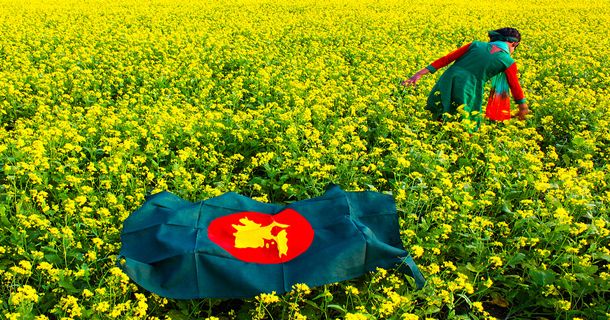
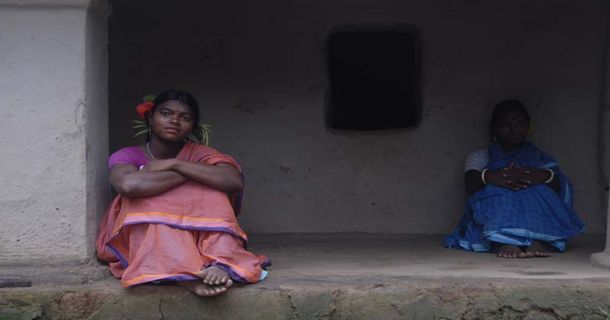
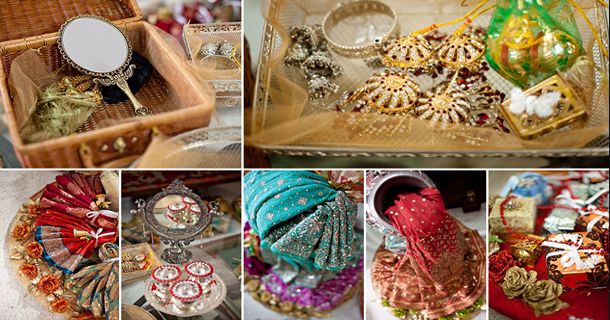
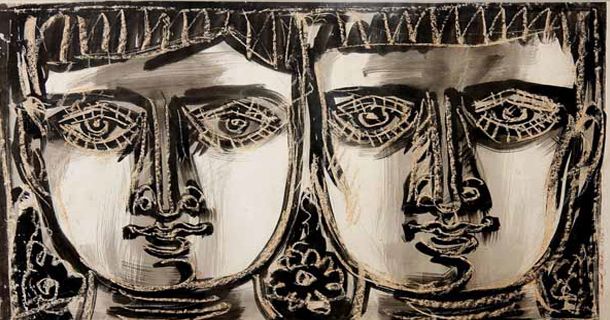
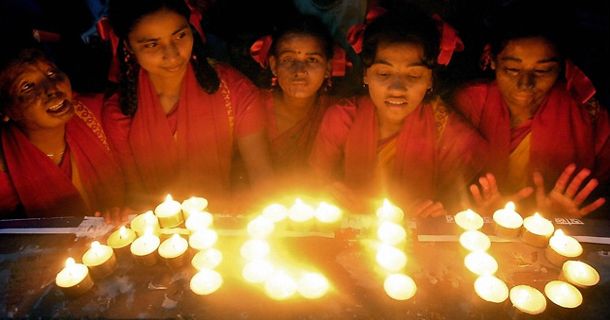
 8:00 AM
8:00 AM
 Maksuda
Maksuda





 Posted in:
Posted in: 
 1. Be Present:
1. Be Present:
















